- Home
- Suzanne Collins
The Ballad of Songbirds and Snakes Page 8
The Ballad of Songbirds and Snakes Read online
Page 8
Coriolanus didn’t bother arguing, as the Grandma’am always took the worst view of anything she deemed district. He went straight to bed, dropping with fatigue, but couldn’t quiet his mind. He took his mother’s powder compact from the drawer of his nightstand and ran his fingers over the rose engraved on the heavy silver case.
Roses are red, love; violets are blue.
Birds in the heavens know I love you. . . .
When he clicked the latch, the lid opened and the floral scent wafted out. In the shadowy light from the Corso, his pale blue eyes reflected back from the round, slightly distorted mirror. “Just like your father’s,” the Grandma’am frequently reminded him. He wished he had his mother’s eyes instead, but never said so. Maybe it was best to take after his father. His mother had not really been tough enough for this world. He finally drifted off, thinking of her, but it was Lucy Gray, spinning in her rainbow dress, who sang in his dreams.
In the morning, Coriolanus awoke to a delicious smell. He went to the kitchen and found that Tigris had been baking since before dawn.
He gave her shoulder a squeeze. “Tigris, you need to get more sleep.”
“I couldn’t sleep, thinking about what’s going on at the zoo,” she said. “Some of the kids look so young this year. Or maybe I’m just getting older.”
“It’s disturbing to see them locked up in that cage,” Coriolanus admitted.
“It was disturbing to see you there as well!” she said, pulling on an oven mitt and taking a pan of bread pudding from the oven. “Fabricia told me to throw out the stale bread from the party, but I thought, why waste it?”
Hot from the oven, drizzled in corn syrup, bread pudding was one of his favorites. “It looks amazing,” he told Tigris.
“And there’s plenty, so you can take a piece to Lucy Gray. She said she liked sweet things — and I doubt there are many left in her future!” Tigris set the pan on the oven with a bang. “Sorry. Didn’t mean to do that. I don’t know what’s gotten into me. I’m wound up tight as a spring.”
Coriolanus touched her arm. “It’s the Games. You know I have to do the mentorship, right? If I’m to stand a chance at getting a prize. I need to win that for all of us.”
“Of course, Coryo. Of course. And we’re so proud of you and how well you’re doing.” She cut a large slice of the bread pudding and slid it onto a plate. “Now eat up. You don’t want to be late.”
At the Academy, Coriolanus felt his apprehension melt away as he basked in the response to his recklessness the previous day. With the exception of Livia Cardew, who made it clear she thought he had cheated and should be dismissed as a mentor immediately, his classmates congratulated him. If his professors were not so openly supportive, he still received several smiles and subtle pats on the back.
Satyria took him aside after homeroom. “Well done. You’ve pleased Dr. Gaul, and that’s won you some points with the faculty. She’ll give a good report to President Ravinstill, and that will reflect well on all of us. Only, you need to be careful. You were lucky how it played out. What if those brats had attacked you in the cage? The Peacekeepers would have been bound to rescue you, and there could’ve been casualties on both sides. Things might’ve been quite different if you hadn’t landed your little rainbow girl.”
“Which is why I turned down Sejanus’s offer to trade tributes,” he said.
Satyria’s mouth dropped open. “No! Imagine what Strabo Plinth would say if that went public.”
“Imagine what he owes me if it doesn’t!” The thought of blackmailing old Strabo Plinth had definite appeal.
She laughed. “Spoken like a Snow. Now get to class. We need the rest of your record spotless if you’re going to go racking up demerits.”
The twenty-four mentors spent the morning in a seminar led by Professor Crispus Demigloss, their excitable old history professor. The class brainstormed ideas — beyond the addition of mentors — to get people to watch the Hunger Games. “Show me I haven’t been wasting my time with you for four years,” he said with a titter. “If history teaches you anything, it’s how to make the unwilling comply.” Sejanus’s hand went up directly. “Ah, Sejanus?”
“Before we talk about making people watch, shouldn’t we begin with the question of whether or not watching is the right thing to do?” he said.
“Let’s stay on topic, please.” Professor Demigloss scanned the room for a more productive answer. “How do we get people to watch?”
Festus Creed raised his hand. Bigger and burlier than most his age, he’d been one of Coriolanus’s inner circle since birth. His family was old Capitol money. Their fortune, largely in District 7 timber, had taken a hit during the war but had rebounded nicely during the reconstruction. His scoring the District 4 girl reflected his status quite accurately. High, but not stellar.
“Enlighten us, Festus,” said Professor Demigloss.
“Simple. We go straight to the punitive,” Festus answered. “Instead of suggesting people watch, make it the law.”
“What happens if you don’t watch?” asked Clemensia, not bothering to raise her hand or even look up from her notes. She was popular with both students and faculty, and her niceness excused a lot.
“In the districts, we execute you. In the Capitol, we make you move to the districts, and if you mess up again next year, then we execute you,” Festus said cheerfully.
The class laughed, then began to give it serious thought. How could you enforce it? You couldn’t send the Peacekeepers door-to-door. Perhaps some random sampling where you needed to be prepared to answer questions that proved you’d watched the Games. And if you hadn’t, what would an appropriate punishment be? Not execution or banishment — those were too extreme. Maybe some loss of privilege in the Capitol, and a public whipping in the districts? That would make the punishment personal to all.
“The real problem is, it’s sickening to watch,” said Clemensia. “So people avoid it.”
Sejanus jumped in. “Of course they do! Who wants to watch a group of children kill each other? Only a vicious, twisted person. Human beings may not be perfect, but we’re better than that.”
“How do you know?” said Livia snippishly. “And how does someone from the districts have any idea what we want to watch in the Capitol? You weren’t even here during the war.”
Sejanus fell silent, unable to deny it.
“Because most of us are basically decent people,” said Lysistrata Vickers, folding her hands neatly on her notebook. Everything about her was neat. From her carefully braided hair to her evenly filed nails to the crisp, white cuffs of her uniform blouse setting off her smooth, brown skin. “Most of us don’t want to watch other people suffer.”
“We watched worse things during the war. And after,” Coriolanus reminded her. There had been some bloody stuff broadcast over the airwaves during the Dark Days, and many a brutal execution after the Treaty of Treason had been signed.
“But we had a real stake in that, Coryo!” said Arachne Crane, giving him a sock on the arm from the seat to his right. Always so loud. Always socking people. The Cranes’ apartment faced the Snows’, and sometimes even from across the Corso, he could hear her bellowing at night. “We were watching our enemies die! I mean, rebel scum and whatnot. Who cares about these kids one way or another?”
“Possibly their families,” said Sejanus.
“You mean a handful of nobodies in the districts. So what?” Arachne boomed. “Why should the rest of us care which one of them wins?”
Livia looked pointedly at Sejanus. “I know I don’t.”
“I get more excited over a dogfight,” admitted Festus. “Especially if I’m betting on it.”
“So you’d like it if we gave odds on the tributes?” Coriolanus joked. “That would make you tune in?”
“Well, it would certainly liven things up!” Festus exclaimed.
A
few people chuckled, but then the class went quiet as they mulled over the idea.
“It’s gruesome,” said Clemensia, twisting her hair around her finger thoughtfully. “Did you mean it for real? You think we should have betting on who wins?”
“Not really,” Coriolanus said, then cocked his head. “On the other hand, if it’s a success, then absolutely, Clemmie. I want to go down in history as the one who brought gambling to the Games!”
Clemensia shook her head in exasperation. But as he walked to lunch, Coriolanus couldn’t help thinking that the idea had some merit.
The dining hall cooks were still working with the reaping buffet leftovers, and the creamed ham on toast had to be the high point of the school lunch year. Coriolanus savored every bite, unlike at the original buffet, when he’d been so distraught over Dean Highbottom’s threatening manner that he’d barely tasted a thing.
The mentors had been instructed to gather on the balcony of Heavensbee Hall after lunch, ahead of their first official meetings with their tributes. Each mentor had been given a brief questionnaire to complete with their assignee, partly as an icebreaker, and partly as a matter of record. Very little information had been archived on previous tributes, and this was an effort to correct that. Many of his classmates had difficulty hiding their nerves as they headed over, talking and joking a little too loudly, but Coriolanus had gotten a leg up by meeting Lucy Gray twice already. He felt completely at ease, even eager to see her again. To thank her for the song. To give her Tigris’s bread pudding. To strategize over their interview.
The chatter died away as the mentors pushed through the swinging balcony doors and caught sight of what awaited them below. All signs of the reaping festivities had been stripped away, leaving the vast hall cold and imposing. Twenty-four small tables flanked with two folding chairs each were spread out in orderly rows. Each table bore a sign with a district number followed by a B or a G and next to it sat a concrete block with a metal ring on the top.
Before the students could discuss the layout, two Peacekeepers entered and stood guard by the main entrance and the tributes were brought in single file. The Peacekeepers outnumbered them two to one, but it was unlikely that any of the tributes could make a break for it, given the heavy shackles attached to their wrists and ankles. The tributes were led to the tables corresponding to their district and sex, directed to sit, and then chained to the concrete weights.
Some of the tributes drooped in their seats, chins almost on their chests, but the more defiant ones tilted their heads back and surveyed the hall. It was one of the most impressive chambers in the Capitol, and several mouths gaped open, awed by the grandeur of the marble columns, the arched windows, the vaulted ceiling. Coriolanus thought it must be a marvel to them, compared to the flat, ugly structures that were the signature style in many of the districts. As the tributes’ eyes traveled around the room, they eventually made their way to the mentors’ balcony, and the two groups found themselves locked in one another’s gazes for a long, raw moment.
When Professor Sickle banged the door behind them, the mentors gave a collective jump. “Stop eyeballing your tributes and get down there,” she ordered. “You only have fifteen minutes, so use them wisely. And remember, complete the paperwork for our records as best you can.”
Coriolanus led the way down the steps that spiraled into the hall. When his eyes met Lucy Gray’s, he could tell she’d been looking for him. Seeing her in chains disquieted him, but he gave her a reassuring smile, and some of the worry left her face.
Sliding into the seat across from her, he frowned at her shackled hands and gestured to the nearest Peacekeeper. “Excuse me, would it be possible to have these removed?”
The Peacekeeper did him the favor of checking with the officer at the door but then gave him a sharp shake of the head.
“Thanks for trying, just the same,” said Lucy Gray. She’d braided back her hair in a pretty fashion, but her face looked sad and tired, and the bruise still marred her cheek. She noticed him looking and touched it. “Is it hideous?”
“It’s just healing,” he said.
“We don’t have a mirror, so I can only imagine.” She didn’t bother to put on her sparkly camera personality for him, and in a way he was glad. Maybe she was beginning to trust him.
“How are you?” he asked.
“Sleepy. Scared. Hungry,” said Lucy Gray. “Only a couple people came by the zoo this morning to feed us. I got an apple, which was more than most but not exactly filling.”
“Well, I can help a bit with that.” He pulled Tigris’s packet from his book bag.
Lucy Gray brightened some and carefully unwrapped the waxed paper to reveal the big square of bread pudding. Suddenly, her eyes filled with tears.
“Oh, no. You don’t like it?” he exclaimed. “I can try and bring something else. I can —”
Lucy Gray shook her head. “It’s my favorite.” She swallowed hard, broke off a bit, and slipped it between her lips.
“Mine, too. My cousin Tigris made it this morning, so it should be fresh,” he said.
“It’s perfect. It tastes just like my mama’s did. Please tell Tigris I said thank you.” She took another bite, but she was still fighting tears.
Coriolanus felt a twinge inside him. He wanted to reach out and touch her face, to tell her that things were going to be all right. But, of course, they weren’t. Not for her. He fumbled in his back pocket for a handkerchief and offered it to her.
“I still have the one from last night.” She reached for her pocket.
“We’ve got drawers full,” he said. “Take it.”
Lucy Gray did, dabbing her eyes and wiping her nose. Then she took a deep breath and straightened up. “So, what’s our plan today?”
“I’m supposed to fill out this questionnaire about your background. Do you mind?” He pulled out the single sheet of paper.
“Not a bit. I love talking about myself,” she said.
The page began with basic stuff. Name, district address, date of birth, hair and eye colors, height and weight, and any disability. Things got more difficult with family makeup. Both Lucy Gray’s parents and her two older siblings were dead.
“Is your whole family gone?” asked Coriolanus.
“I have a couple of cousins. And the rest of the Covey.” She leaned in to check the paper. “Is there a space for them?”
There wasn’t. But there should be, he thought, given how fractured families were by the war. There should be a place for anyone who cared for you at all. In fact, maybe that should be the question to start with: Who cares about you? Or even better, Who can you count on?
“Married?” He laughed, then remembered they married young in some of the districts. How did he know? Maybe she had a husband back in 12.
“Why? Are you asking?” said Lucy Gray seriously. He looked up in surprise. “Because I think this could work.”
Coriolanus felt himself blush a little at her teasing. “I’m pretty sure you could do better.”
“Haven’t yet.” A flicker of pain crossed her face, but she hid it with a smile. “I bet you’ve got sweethearts lined up around the block.”
Her flirtation left Coriolanus tongue-tied. Where were they? He checked the paper. Oh, yes. Her family. “Who raised you? After you lost your parents, I mean.”
“An old man took us in for a fee — the six Covey kids who were left. He didn’t much raise us, but he didn’t mess with us either, so it could’ve been worse,” she said. “Really, I’m grateful. People weren’t excited about taking in six of us. He died last year of the black lung, but some of us are old enough to manage things now.”
They moved on to occupation. At sixteen, Lucy Gray wasn’t old enough for the mines, but she didn’t attend school either. “I make my living entertaining people.”
“People pay you to . . . sing and dance?” asked Coriola
nus. “I wouldn’t think district people could afford that.”
“Most can’t,” she said. “Sometimes they pool their money, and two or three couples get married the same day, and they hire us. Me and the rest of the Covey, that is. What’s left of us. The Peacekeepers let us keep our instruments when they rounded us up. They’re some of our best customers.”
Coriolanus remembered how they’d tried not to smile at the reaping, how no one had interfered with her singing and dancing. He made a note of her employment, finishing the form, but he had plenty of questions of his own. “Tell me about the Covey. What side did you take in the war?”
“Neither. My people didn’t take a side. We’re just us.” Something behind him captured her attention. “What’s your friend’s name again? The one with the sandwiches? I think he’s having trouble.”
“Sejanus?” He looked over his shoulder and back through the rows to where Sejanus sat across from Marcus. An untouched meal of roast beef sandwiches and cake languished between them. Sejanus was speaking entreatingly, but Marcus just stared fixedly ahead, his arms crossed, his whole being unresponsive.
Around the room the other tributes were in various stages of engagement. Several had covered their faces and were refusing to communicate. A few were crying. Some warily answered questions, but even they looked hostile.
“Five minutes,” Professor Sickle announced.
That reminded Coriolanus of another five minutes they needed to address. “So, the night before the Games begin, we’re going to get a five-minute interview on television in which we can do whatever we want. I thought you might sing again.”
Lucy Gray considered it. “I’m not sure there’s a point to it. I mean, when I sang that song at the reaping, that didn’t have anything to do with you all here. I didn’t plan it. It’s just part of a long, sad tale that nobody but me gives a hoot about.”
“It hit a nerve with people,” Coriolanus observed.

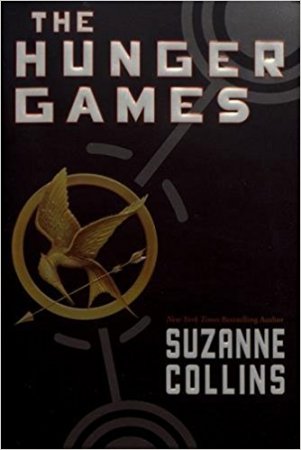 The Hunger Games
The Hunger Games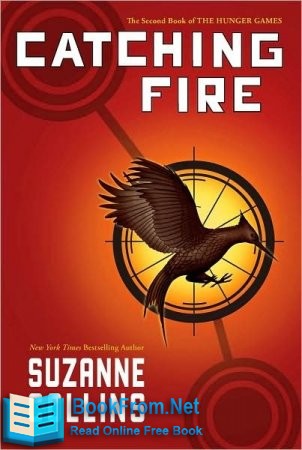 Catching Fire
Catching Fire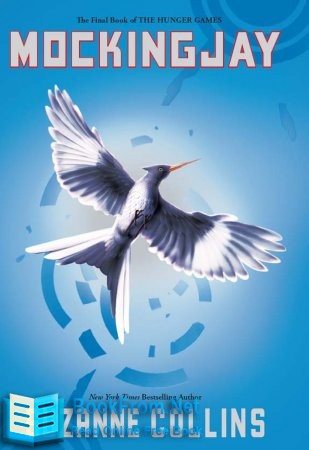 Mockingjay
Mockingjay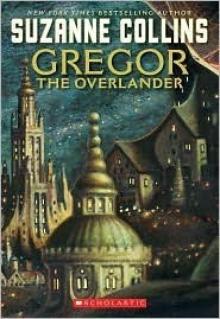 Gregor the Overlander
Gregor the Overlander Gregor and the Curse of the Warmbloods
Gregor and the Curse of the Warmbloods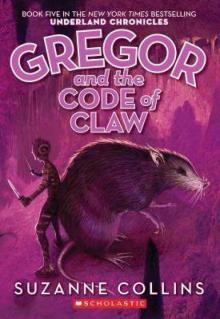 Gregor and the Code of Claw
Gregor and the Code of Claw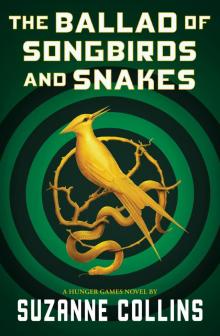 The Ballad of Songbirds and Snakes
The Ballad of Songbirds and Snakes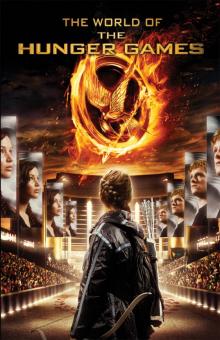 The World of the Hunger Games
The World of the Hunger Games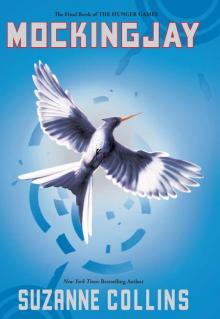 Mockingjay (The Final Book of The Hunger Games)
Mockingjay (The Final Book of The Hunger Games)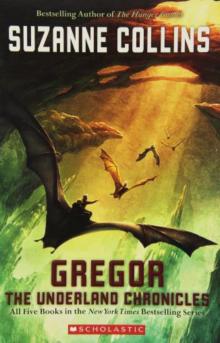 The Underland Chronicles: Books 1-5 Paperback Box Set
The Underland Chronicles: Books 1-5 Paperback Box Set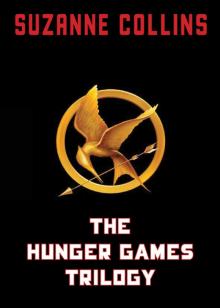 The Hunger Games Trilogy
The Hunger Games Trilogy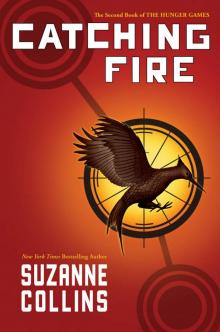 Hunger Games 02 - Catching Fire
Hunger Games 02 - Catching Fire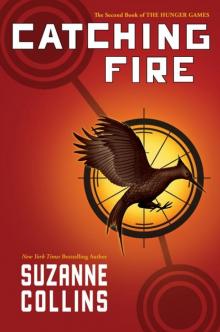 Cathing Fire thg-2
Cathing Fire thg-2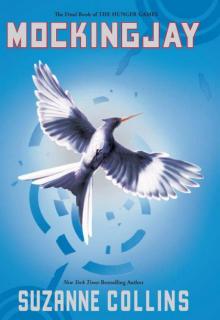 Hunger Games 03-Mockingjay
Hunger Games 03-Mockingjay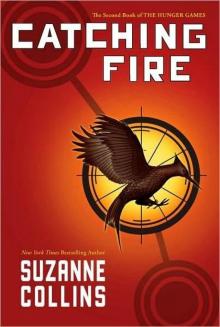 Hunger Games 2 - Catching Fire
Hunger Games 2 - Catching Fire Hunger Games 01 - The Hunger Games
Hunger Games 01 - The Hunger Games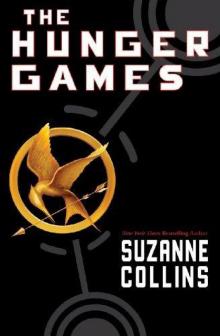 Hunger Games 01-The Hunger Games
Hunger Games 01-The Hunger Games